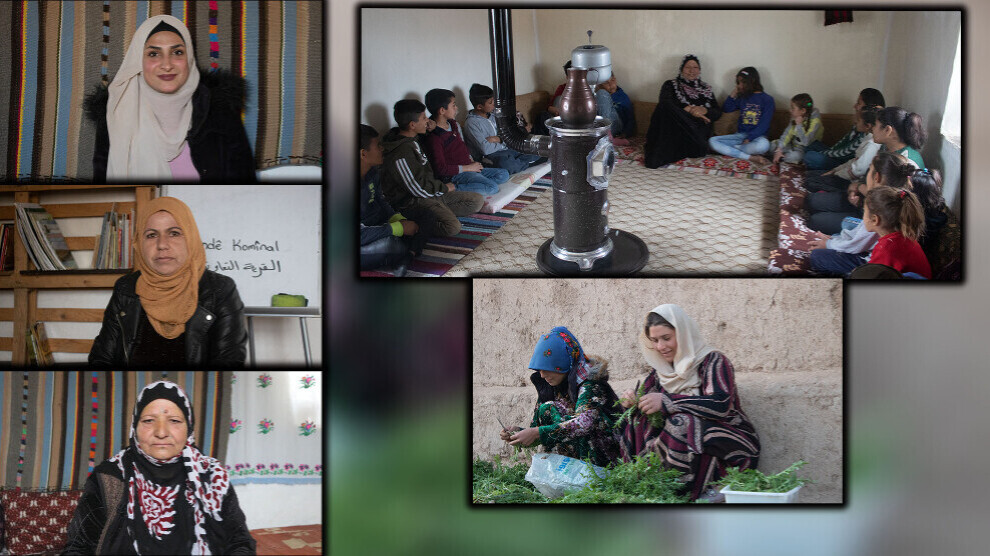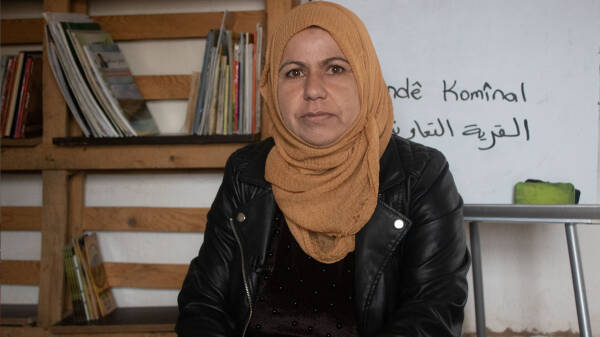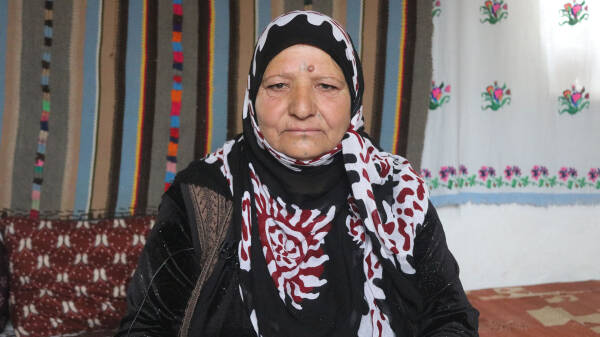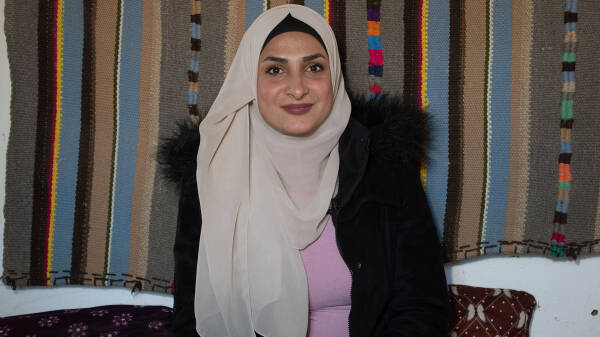Common life in Hasûd village: Commune Village Project
A project named “Commune Village Project” has been put into practice in the Hasûd village of Tirbespiyê, a city in the Qamishlo Canton for the villagers to earn a living from what they produce.

ROJ HOZAN/EBÎR MUHEMED
Qamishlo- With their philosophy, consciousness and labor, women are the creators of communal life and a part of nature. Communal life is the most suitable form of life for women's creativity, culture and needs. A project named “Commune Village Project” has been put into practice in the Hasûd village of Tirbespiyê, a city in the Qamishlo Canton for the villagers to earn a living from what they produce.
The history of the Hasûd village
The Hasûd village was built 71 years ago. It is located in the south of Tirbespiyê city of the Qamishlo Canton, North and East Syria. 21 years ago, many villagers were forced to leave the village after the Syrian regime caused fights among villagers. The village of Hasûd (Hasûd means agriculture and harvest in Kurdish) is known for agricultural richness.
When the village was built, there were only four houses in the village. But in time, the population of the village increased and according to the villagers, 400 people live in the village now. In the village, where mostly Kurdish people live, there are 15 Arab families. Arab and Kurdish families have a communal life by respecting each other's cultural differences. The means of livelihood in the village is first agriculture and then animal husbandry. One of the main reasons for the realization of the commune village project in the village is that this village is actually very suitable for the project.
The aim is to develop a communal life
The project aims to support the villagers to earn a living from what they produce and Arab and Kurdish people to solve their problems together. After the actualization of the project in the village, the number of people, who leave the village to find a job, has decreased. The project has several sections such as gardening, women's education and organization, improving children’s education and art skills. The three-year project is expected to be a role model for other villages.
‘Women lead in all spheres of life’
Şehzena Mûsa is a teacher of the section of children’s education and art skills. Mentioning how the project is important for the villagers, she said, “At the beginning, we decided to open a workshop as part of the project to ensure gender equality by including children. Women played a leading role in the preparation of training spaces. Now, we teach science and other things to children in order to stand on their own feet in the future. In addition, we, as women, share our traditions and the history of our village with each other. We also teach children how to communicate with each other by respecting each other. Now, children express their own opinions freely and they participate in discussions about themselves. Since the project was put into practice in the village two years ago, we give necessary information about life to children every Saturday. On other days of the week, children receive education about science and art, play games and participate in all the activities that children love. Children also receive language courses; Kurdish and Arab children learn each other’s language. Our aim is to raise children respecting democracy and each other’s identities.”
‘We always stand by each other’

Şêrîn Mihemed, co-chair of the Commune of the Hasûd village, has lived in the village for 40 years. “In this village, people have a strong relationship. We are like a big family. We always stand by each other and support each other. We love the attitudes of children, the strong stance of women and the laughs of mothers. In addition, we teach our experiences with children by telling stories. Two days a week, a mother gathers the children around her and tells them old stories and tales. In this way, we pass down our culture to the next generations.”
Section for Women’s Education

Cîhan Şêxmûs, a member of the section for women’s education, told us their activities as follows: “When we formed our education committee, all women willingly participated in the section. At the beginning, we formed a group consisting of women to spread women’s science (Jineology) in the village. Every week, all women in the village come together to talk about women's science. Our education program focuses on natural life, women's labor, women’s diseases and problems. Women can freely express their thoughts.”
Section for children’s education and art skills

Nofa Reşo, member of the section for children’s education and art skills, spoke about their activities as follows: “We have formed an art group in the village. Many times, we wanted to improve ourselves in art; however, we did not have any opportunities. This project provides this opportunity for us. Until now, we have taught three Kurdish dances to children. We love our village.”
